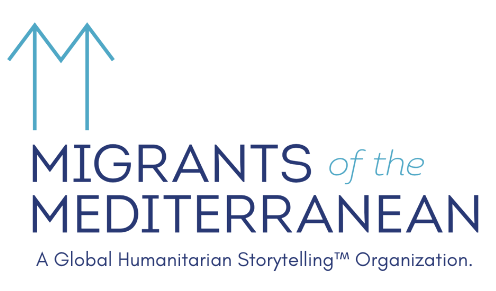Meet Philip
Philip on Lampedusa island, 1 month and 3 days after rescue. Lampedusa, Italy; 8 April 2017. ©Pamela Kerpius/Migrants of the Mediterranean
by
Pamela Kerpius
Recorded:
8 April 2017
Published:
2017
Meet Philip.
25 years old and from Benin City, Nigeria.
To reach Lampedusa he crossed three countries: Nigeria, Niger, and the most dangerous of all, Libya.
Philip’s journey took one year and two months. It was three days to Agadez, Niger from Benin City, where he stayed for four days before entering the desert.
He crossed the Sahara desert on 15 January 2016, which took him five days. He arrived in Libya and was driven to a compound in Sabha; the people guarding it had AK47s and pump-action guns.
Like Richard, he was tortured regularly. He was given electric shock everyday for eight months.
His captors gave him a phone to call for money while he screamed from the electric shock; his mother would listen on the other end. The captors demanded 150K Nigerian Naira (NGN), which would be deposited in a Nigerian bank account opened especially for this sort of transaction. His mother could not send any money so he was stuck. The roof of the compound was rigged with voltage, so if anyone tried to climb through they’d be electrocuted.
Conditions inside were bad. There was very little to eat. He once went five days with no food. When he did eat, it was a mix of flour and canned tomatoes, of which he received less than a little handful. The water to drink was salty, from the tap. He witnessed seven people die from starvation.
There was no money to be made from Philip since his mother wouldn’t transfer funds, so somehow he was released, and he picked up work washing cars for 30 dinars apiece. It cost 400 dinars to get to Tripoli.
It took Philip over a week to get to Tripoli on a route where traffickers left him to sleep among animals in a yard on some nights. He was fed a piece of bread once daily and, again, drank salty tap water. Bottled water is reserved only for those people with enough money in their pockets.
He was employed by an Egyptian man in Tripoli doing tile work for 30-40 dinars a day. He had to raise 1,200 dinars to pay for passage on the palapa, the rubber boat, that left from the coastal camp in Sabratha.
If you allow the term fortunate to describe Philip’s time in Tripoli, he was. Unlike others, he was fairly paid for his work and given both a place to stay and food to eat. A lot of others I’ve talked to, and which has been reported on elsewhere, are instead put into slavery.
All the same, at night he says he slept with his shoes on because he never knew when he might be attacked or would have to run.
“They take us Black people as animals to kill anytime,” he said.
He arrived in Sabratha and stayed for one week before departing.
Nothing is allowed aboard the boat. No extra clothes, no shoes, no bags. Anything extra that weighs down or impedes the mobility of the boat, even pieces of metal attached to clothing (like the rivets on a pair of jeans, for example) will be cut off before boarding lest they puncture the plastic.
“They take us Black people as animals to kill anytime.”
Philip crossed the Mediterranean Sea in a rubber dinghy with 130-140 people; it was a Friday. He traveled on the edge of the inflatable vessel with one foot dangling over the edge into the sea.
People on board were terrified.
People were shouting for God.
A UN rescue team from Spain picked him up after nine hours. He only remembers them directing him and the others to stay calm and be still while they began the rescue effort. He was transferred to the Guardia Costiera and brought to Lampedusa on 5 March 2017.
I asked him and Richard if they would make this journey again if they knew in Nigeria what they know about the voyage now.
They erupted in groaning no’s and shook their heads unequivocally. The news of the torture and abuse migrants face along the way to and across Libya is not commonly known by people in Nigeria (and presumably other West African countries too).
His mom cried on the phone when he told her he made it to Italy.
Now, he wants to go to school and learn the language here. He loves football and used to bet on his team when he still lived in Nigeria. “I would lose a lot,” he says, but he stands by Manchester United anyway.
Philip is an amazing human being.

